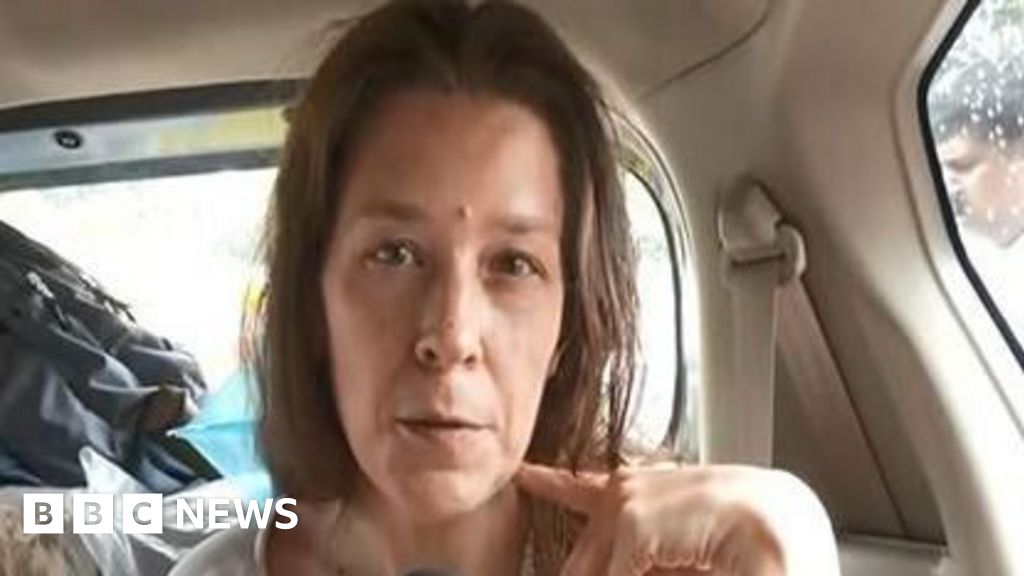Russian Woman Found Living in Karnataka Cave
Authorities in India are investigating the case of Nina Kutina, a Russian woman discovered residing in a cave in Karnataka’s southern region along with her two young daughters. The police rescued them on July 9 during a routine patrol near the Ramteertha hills within the Gokarna forest, close to the tourist hotspot of Goa.
Kutina, 40, and her daughters, aged six and five, reportedly lack proper documentation to remain in India. Currently, they are at a detention center for foreign nationals near Bengaluru, with imminent plans for deportation. During interviews with the Indian news agency ANI, Kutina claimed she and her children were content with their cave lifestyle, asserting that “nature provides good health.”
Discovery of the Cave
“The area attracts many tourists, especially from abroad, but also has numerous snakes and poses risks of landslides during the rainy season. Therefore, we initiated forest patrols last year for tourist safety,” explained M Narayana, the superintendent of police for Uttara Kannada. A fellow officer recalled spotting brightly colored clothes hanging outside the cave and ventured closer, where a young blonde girl emerged, leading them to Kutina and her younger daughter inside.
Their living conditions were basic, with only a few plastic mats, clothing, instant noodle packets, and other groceries present in the damp cave. Nevertheless, police videos captured the children cheerfully dressed in traditional attire. “The woman and her children seemed relatively comfortable, but it took some effort to convince her about the dangers of living there,” Narayana added. On being informed of potential threats from wild animals, Kutina maintained, “Animals and snakes are our friends. Humans are dangerous.”
Nina Kutina’s Background
An official from India’s Foreigners Regional Registration Office (FRRO) confirmed that Kutina will be repatriated after completing essential procedures. They have contacted the Russian consulate in Chennai for assistance. In her interviews, Kutina mentioned she was born in Russia but hasn’t lived there for 15 years, traveling to a multitude of countries including Costa Rica and Thailand.
She has four children, two of whom are in her care. Tragically, her eldest son passed away in a road accident last year in Goa. Although her daughters are now safe, her estranged partner, Israeli businessman Dror Goldstein, is seeking to prevent their return to Russia, indicating his desire for joint custody.
Living Conditions and Visa Status
Details regarding how Kutina and her daughters reached the Karnataka caves remain unclear. While she claims they had been living there for a week, police discovered evidence that she had recently purchased groceries locally. Although she asserted she was born in another cave in Goa, she is currently facing challenges at the detention center, describing it as “like jail” and lamenting the lack of food and cleanliness.
Kutina admitted that she had lost her passport; nonetheless, police found an expired version revealing that she initially entered India on a business visa. This visa, valid from October 2016 to April 2017, was overstayed, resulting in a previous incident with authorities. She traveled to Nepal afterwards, but the specifics of her whereabouts until her recent re-entry into India remain uncertain.
Reasons for Cave Living
After discovering a Hindu idol within her cave, speculation arose suggesting her spiritual motivations for residing there. However, Kutina dismissed this notion, explaining that her choice was based primarily on her love for nature and its health benefits. She emphasized that her daughters thrived in the outdoors and enjoyed various activities, including swimming and arts and crafts.
Critically, she refuted claims that living in the forest posed dangers for her children, equating occasional sightings of snakes with the common occurrence of finding them in residential areas. “Throughout our time there, yes, we encountered a few snakes,” she remarked, “but it’s no different than finding them in one’s own home.”



